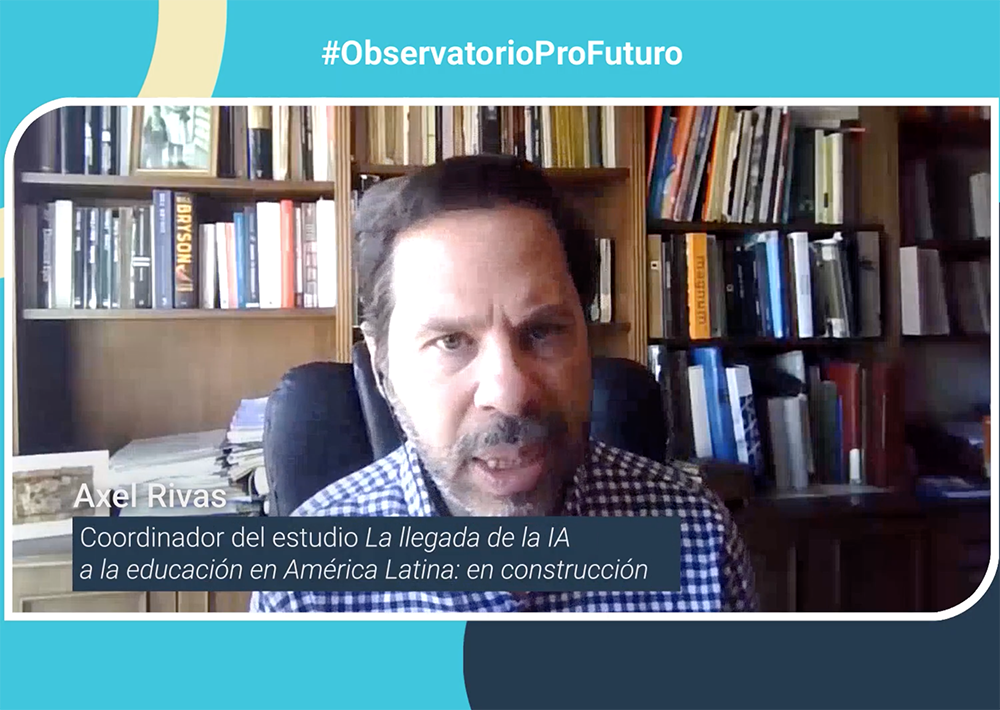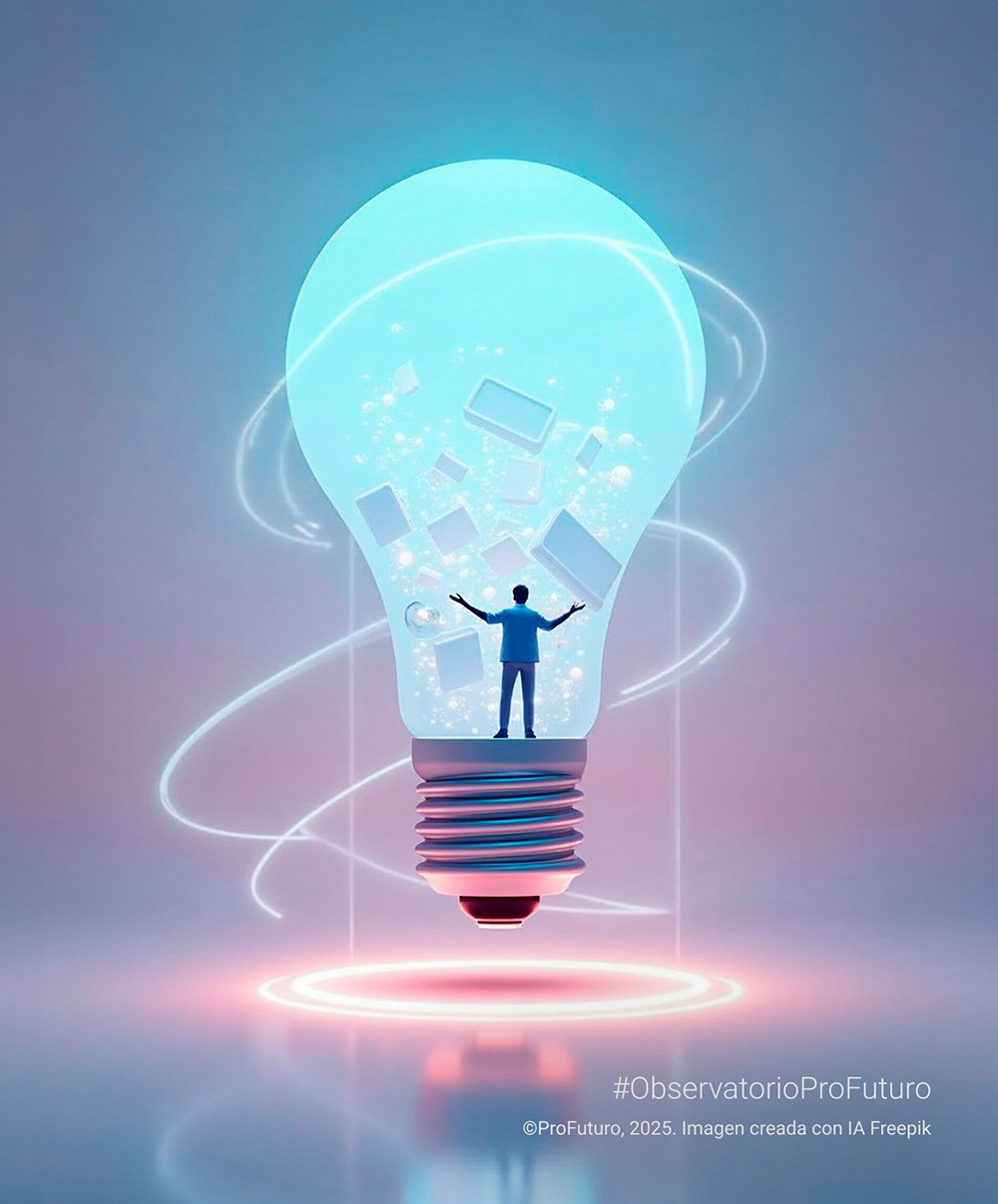In an era in which digital technology has a huge impact, one of ProFuturo’s main interests has been to devise an approach to the complexity of education in its different contexts. Based on this premise, the challenge was to build, by means of comprehensive analysis and by mapping a broad international selection of references in the field of education, a framework document that presents an integrated and holistic vision of this professional profile, focused on the development of competences for learning and teaching in the digital age.
This brief approximation in interview format provides an initial overview, from a practical perspective, of the usefulness and pedagogical value of the Framework for Learning and Teaching in the Digital Age as a reference in professional development from multiple angles.
Why are the competences structured in a particular way within ProFuturo’s Framework for Learning and Teaching in the Digital Age? Why these dimensions?
The work of the Framework begins by exploring frameworks of learning and educational competences from around the world, with a particular emphasis on those relating to vulnerable environments and those developed by supranational institutions. A detailed analysis of all these frameworks reveals the following three learning identities: citizen identity, connector identity and knowledge-building identity. Educational competence is, after all, a particular manifestation of the competence to learn, and therefore also encompasses the citizen and connector identities, and the knowledge-building dimension is embodied and defined in terms of the teacher’s classroom activity within the teaching dimension. In turn, each identity is developed through different roles. Ultimately, it is an exercise in trying to order and simplify something that is complex and organic, and on which each community will have to make its own judgement, taking into account its specific and local reality.
A brief example of the command of these dimensions.
Focusing on the current context, let us imagine a teacher of pre-school (3/6 years old) or of the first years of primary school (7/9 years old) who is competent according to ProFuturo’s Global Framework and who is faced with an unforeseen scenario of distance education. As part of that teacher’s citizen identity, we can imagine how she actively exercises her engagement as a citizen online, by sharing only truthful information among her contacts, while at the same time seeking to ensure the well-being of her students and her students’ families by promoting a safe and meaningful use of technologies. We can also imagine that teacher designing new learning experiences to respond to her students’ new needs, as part of her teaching identity, while working together with other colleagues in this process of digitally transforming her teaching practice, as part of her connector identity.
Is the digital factor a pivotal factor in ProFuturo’s teaching competence? Can you be a good teacher without mastering it?
The current situation is a good example of how difficult it is to be an educator without a reasonable command of technology. In fact, ProFuturo’s decision to develop its Framework for Learning and Teaching in the Digital Age responds to its resolve to look at the phenomenon of education from as global a perspective as possible, in which technology cuts through any activity performed by learners and educators alike. In today’s world, it seems unthinkable that a community might be able to thrive without technology. Fostering digital skills must be a key element in public policy if we aspire to a more sustainable and fairer future and, in this connection, we need educators who are able to use technology and promote its use among learners.
Taking into account the situation the world is currently experiencing; how do you prepare teachers who must urgently transfer their activity to a digital environment?
We would prefer to think that teachers don’t need preparing but are able to take an active role in their own personal and professional development. There is wealth of open and accessible learning resources at the click of a button. It is also easy to find online communities of teachers sharing forums for reflection and best practices. Perhaps as educators we should reflect on the importance of lifelong learning and the relevance of the digital world in accepting one’s own training as a personal journey, as an exercise of responsibility towards oneself and one’s community. Perhaps this would make it easier to respond to new situations like the one we are currently experiencing.
Biography
David Álvarez defines himself as a lifelong learner and skilled consultant in educational and professional development projects. He holds a degree in Exact Sciences from the University of Granada and qualified as an expert in e-Learning at the University of Seville. He is a specialist in digital literacy, PLE (Personal Learning Environment) and talent management (e-aprendizaje.es). He is the author of the publication Personal Learning Environments (PLE): Networked Learning, published by the Spanish Ministry of Education (MECD), and has written articles for other journals such as Entornos Personales De Aprendizaje: Claves Para El Ecosistema Educativo En Red [coordinated by Jordi Adell and Linda Castañeda], La Universidad en la Nube [coordinated by Juliana Bergmann and Mariona Grané for the Transmedia collection at Barcelona University] and Artefactos Digitales: Una escuela digital para la educación de hoy [a Conecta13 publication coordinated by Fernando Trujillo and published by Graó].
At present
He is a founding member of Conecta13 where, together with Fernando Trujillo, Diego Ojeda and Miguel Angel Ariza and the rest of the team, he works on the design, development and evaluation of professional and organisational development projects. One of the projects he has led, together with Fernando Trujillo, is the design and development of ProFuturo’s Global Framework for Learning and Teaching in the Digital Age.






